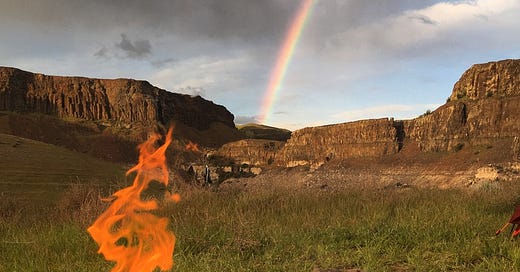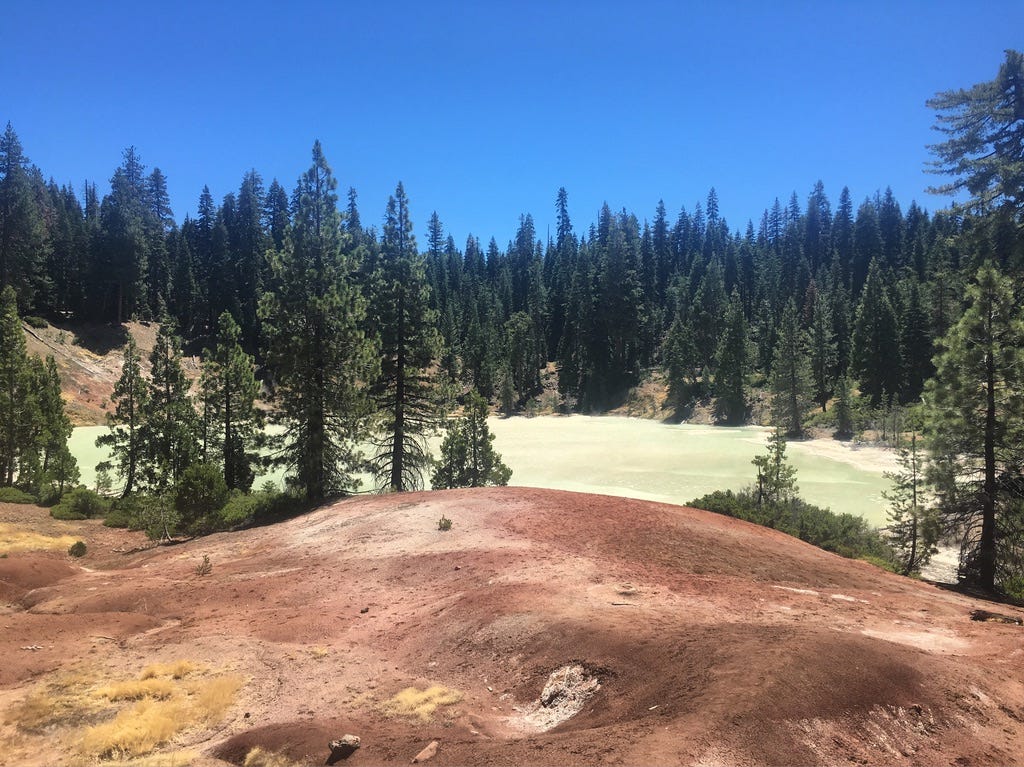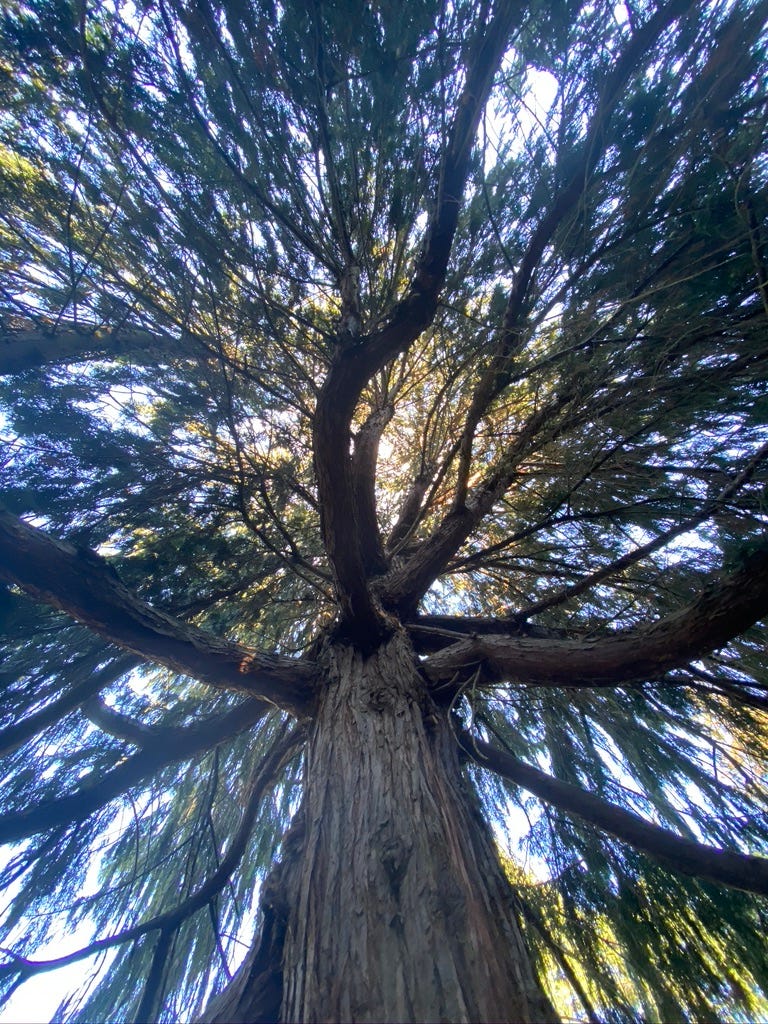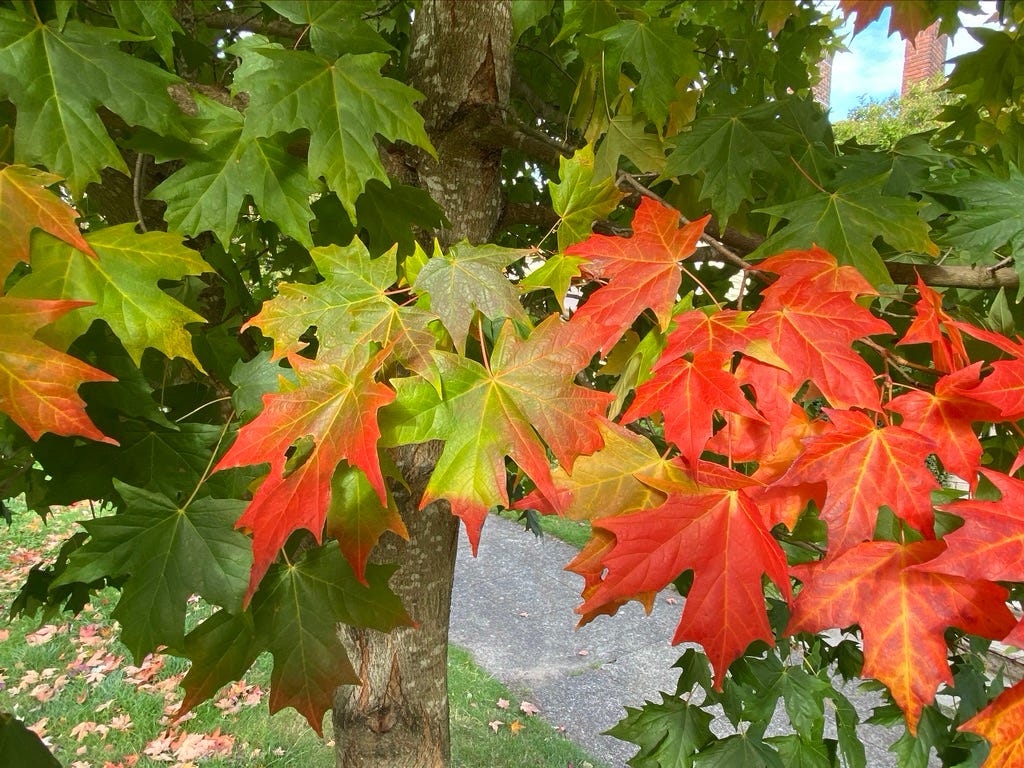To Light A Candle Is To Cast A Shadow
The wise man is one who never sets himself apart from other living things
Were you aware? The holiday season is upon us. My book about hiking the Pacific Crest Trail, A Good Place For Maniacs, makes for an excellent stocking stuffer or future doorstop. You can get a copy the regular way by clicking the button below, but I also have a limited amount of signed copies for sale that can be personalized however you’d like.
Yesterday I had the privilege of lecturing on my book and my writing process in a prestigious setting: my buddy’s third grade classroom. It was a refreshing, humbling experience—there is little that can make you feel like you have the world figured out like the rapt attention of a child, and little that can make you sure you know nothing than that same child ignoring you completely two minutes later.
But the cool thing about kids is that they will keep their basic inherent curiosity even if they think you are boring, or are possibly not real, an entertainer brought in to distract them as a thin ruse. So I got a lot of questions, about both my Pacific Crest Trail hike and my writing process.
How long did it take you to write the book?
How many hours did it take you to hike the trail?
That acid lake you showed us a picture of—did you touch it?
Was the acid lake hot?
Okay but did you touch it?
What kind of acid is in the lake?
How did the acid get in the lake?
What was it like when you touched the acid lake?
They got really hung up on a picture of an acid lake in Lassen Volcanic National Park, is what I’m saying. And I’m grateful that the teacher—my friend Rake, to those of you who’ve read the book—was able to put us back on track eventually.
But amidst all of that I did get one question that I think is a fundamentally important one—and again, one posed to me by a third-grader:
Why do you write about yourself?
What I said was this: I write about myself when I have done something I think is interesting, because other people might find it interesting too. But mainly I write about myself because I often don’t really know what I think about something until I’ve had to write it down and explain it to myself, or think about explaining it to other people. Writing about yourself is a good way to figure out who you are and what you believe.
I wanted to take a moment and thank you all for coming along for the ride as I do just that each week. (It’s the season for that kind of thing, after all.) I am talking to myself as much as I am to any of you when I sit down to write this newsletter, and a few hundred of you diligently open this thing every time anyway. It feels indulgent, frankly—that I can write a few thousand words among which I is uncomfortably common, and you all seem to like it anyway. This newsletter is 18 months old and I hope I never get less grateful for that.
In return allow me to ask you a question of my own: What is it that you do to figure out who you are? Maybe it’s writing, maybe it’s painting. Maybe it’s astrology or walking in the woods or making Instagram stories. Maybe it’s something my narrow imagination hasn’t even considered. I genuinely want to know, because once you’ve stopped being curious about what makes other people tick, that’s it—you’re basically lost. There’s a comment section down at the bottom; feel free to let me know there, or reply to the email that this came in if you’re a subscriber. You should also drop a link if what you do to figure yourself out is also out there for public consumption. Finding out about you is the least I can do for all the hearing about me you’ve done lately.
I have spent the past few weeks off of Twitter and Facebook, an annual end-of-year purge that among other things helps me recover my childhood memories. Unsurprisingly this has left me with quite a bit of time that I would otherwise have filled with doomscrolling. What I have done instead is probably quite a bit healthier: I wander around my neighborhood with the PictureThis app, trying to learn the names of the trees and flowers and other plants I see.
My discoveries have ranged from the spectacular to the pedestrian, but all of it has felt worth learning. I have found strange and bright new berries that I did not know existed; I have found out that Fuschia was the name of a plant before it became the name for the color of that plant, not the other way around, and that it grows in my neighbor’s front yard. I have noticed more closely all the rich deciduous variety of this state that for too long I have considered evergreen—paper birches, sugar maples, oaks, and countless others. I have found trees nearby that connect me to experiences I had far away: quaking aspens, like the one in the yard of a bed and breakfast where I once reconnected with my wife after four hard months apart; a staggering giant sequoia in the middle of the Zoo’s parking lot, like the ones I once hiked past in California.
As the days get grayer, drearier, and shorter here in Seattle these walks of discovery will become shorter and less frequent, I’m sure, and as the leaves continue to fall the trees themselves will get harder to identify. But I’m going to keep trying, because I think the act of Noticing—like caring about what makes other people tick—is an important piece of situating yourself in the world, recognizing your place in it.
I recently came across a passage in Ursula Le Guin’s A Wizard of Earthsea that I thought summed this up quite well.
From that time forth he believed that the wise man is one who never sets himself apart from other living things, whether they have speech or not, and in later years he strove long to learn what can be learned, in silence, from the eyes of animals, the flight of birds, the great slow gestures of trees.
The book is all about balance, about coming to terms with the idea that any act of creation inherently brings into the world its opposite—that the cost of living, to return to a theme addressed in this newsletter countless times, is death, which is what gives life any meaning at all. (Phillip Pullman’s fantasy works, like Le Guin’s, bring to light this same idea. Characters in one of the worlds of His Dark Materials literally walk around side by side with their anthropomorphized Deaths, and for this reason do not fear them, but understand them as inevitable.) Le Guin puts it this way:
For a word to be spoken, there must be silence. Before, and after.
If you don’t like that metaphor, she has others:
To light a candle is to cast a shadow.
So maybe all this, too, is why I write about myself, like those kids asked. I find it affirming to interrogate myself and my experiences as I stumble through life, because I suppose I am a little bit obsessed with making sure that I am creating space to understand and appreciate that life has any meaning at all. In this way I can protect myself against taking too many things for granted, which is a state I am too naturally inclined towards.
Anyway—like I said, please drop me a comment below or send me an email if you know what it is you do to figure yourself out. I’d love to know. Thanks, as always, for reading. I’ll catch you next week.
-Chuck
PS: If you liked what you read here, why not subscribe and get this newsletter in your inbox each week? It’s free and always will be.








For almost four decades, my answer would have been "running." But now that I'm older and I suppose wiser (and empirically slower), there's this... https://jimmckeever.wordpress.com/2020/03/24/my-best-second-language/